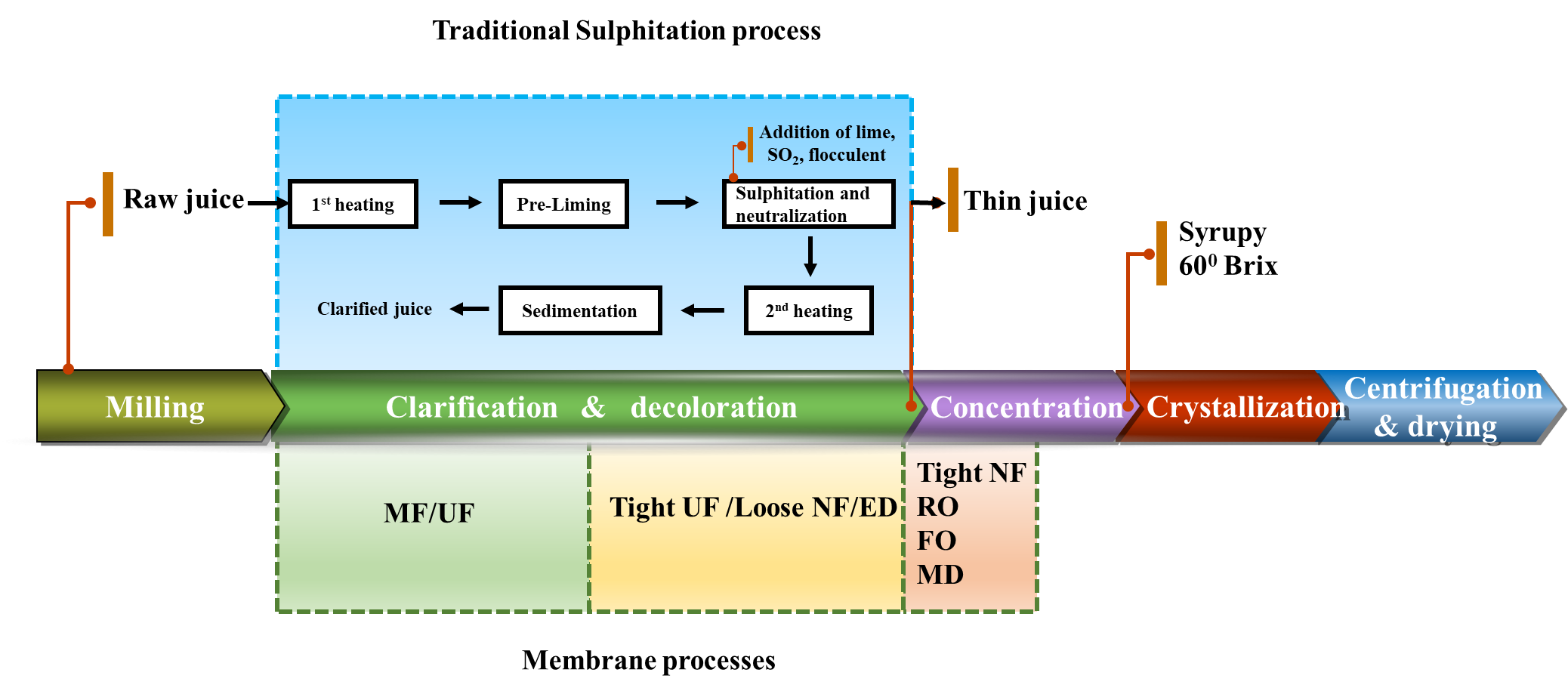Sugar is one of the most important commodities in life. The application of membrane filtration in sugar production shows great prospects, because it can reduce the usage of chemicals, produce high-quality clarified juice, as well as obtain various high value-added products.
However, membrane-based sugar production still struggles to achieve industrialization due to the existence of several challenges, such as severe membrane fouling and inefficient membrane cleaning.

Figure 1. Schematic of white sugar production by traditional sulphitation process or membrane processes. (Image by ZHANG Hao)
Researchers from the Institute of Process Engineering (IPE) of the Chinese Academy of Sciences provided a comprehensive review on recent advances, major issues, and challenges in membrane-based sugar production process. The study was published in Green Chemical Engineering on Nov. 21 (DOI:10.1016/j.gce.2020.11.006).
The application of membrane filtration in the clarification, decoloration, and concentration processes of sugar production can improve the turbidity and color removal efficiency, eliminate the usage of chemicals, and show apparent benefits for the following evaporation and crystallization processes, including lowering the energy consumption and increasing the sugar productivity.
However, a single-step filtration is impracticable for the direct production of white sugars due to severe concentration polarization and membrane fouling.
An integrated membrane process is developed. It enables foulants distribution in different membrane stages, which largely mitigates membrane fouling and improves membrane selectivity, thereby increasing sugar yields and productivity.
To fully utilize cane juice, membrane-based sugar production process is developed to produce various products such as raw sugar, brown sugar, white sugar, liquid sugar, fructose syrupy and natural pigments with oxidation resistance which, in turn, maximizes the economic benefits of the membrane-based sugar production.
Challenges including sucrose loss in membrane retentate, cumulative membrane fouling, inefficient membrane selectivity, and incomplete cleaning protocols are the main obstacles for industrialization.
The researchers pointed out that the joint action of advanced membrane material development and membrane process intensification would accelerate the industrialization of such advanced technology.

Figure 2. The research progress of membrane-based sugar production process and outlook of future works to realize industrialization. (Image by ZHANG Hao)
"This work not only provides an overview and recent development of membrane-based sugar production technology, but also offers a meaningful guidance to advance its industrial application," said Prof. LUO Jianquan from IPE, "we are going to build an industrial-scale system (kiloton class per day) in Guangxi province this winter, and we believe this is a big step for its industrialization."
Media Contact:
LI Xiangyu
Public Information Officer
Institute of Process Engineering, Chinese Academy of Sciences, Beijing 100190, P. R. China.
E-mail: xiangyuli@ipe.ac.cn
Tel: 86-10-82544826
 Search
Search




 京公网安备110402500047号
京公网安备110402500047号